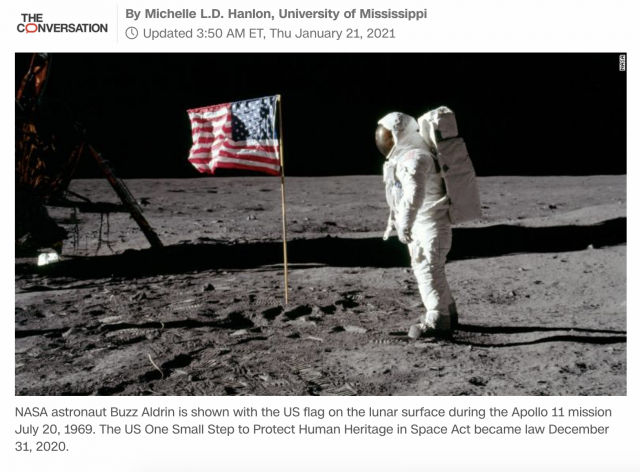CNN/The Conversation
It’s hard to care about bootprints sunk in soil 238,900 miles away as humanity suffers the combined burden of an unforgiving virus and a political unease. But how humans treat those bootprints and the historic lunar landing sites upon which they are found will speak volumes about who we humans are and who we seek to become.
On December 31, 2020, the One Small Step to Protect Human Heritage in Space Act became law. As far as laws go, it’s pretty benign. It requires companies that are working with the National Aeronautics and Space Administration on lunar missions to agree to be bound by otherwise unenforceable guidelines intended to protect American landing sites on the moon. That’s a pretty small pool of affected entities. However, it is also the first law enacted by any nation that recognizes the existence of human heritage in outer space. That’s important because it reaffirms our human commitment to protecting our history — as we do on Earth with sites like the Historic Sanctuary of Machu Picchu, which is protected through instruments like the World Heritage Convention — while also acknowledging that the human species is expanding into space.
